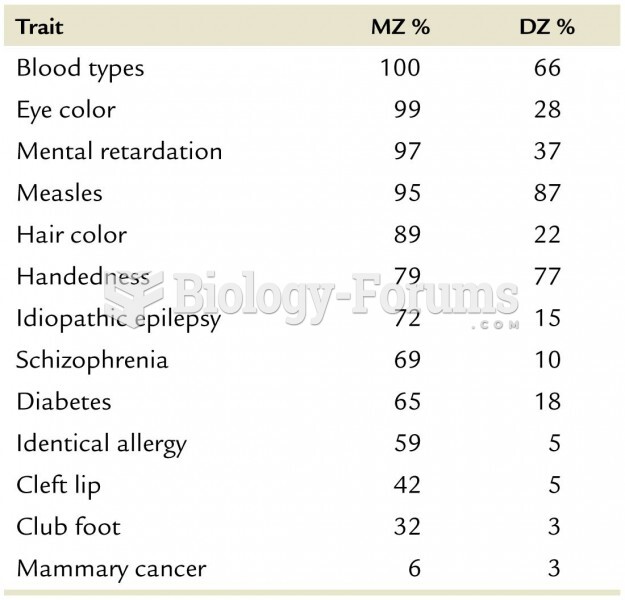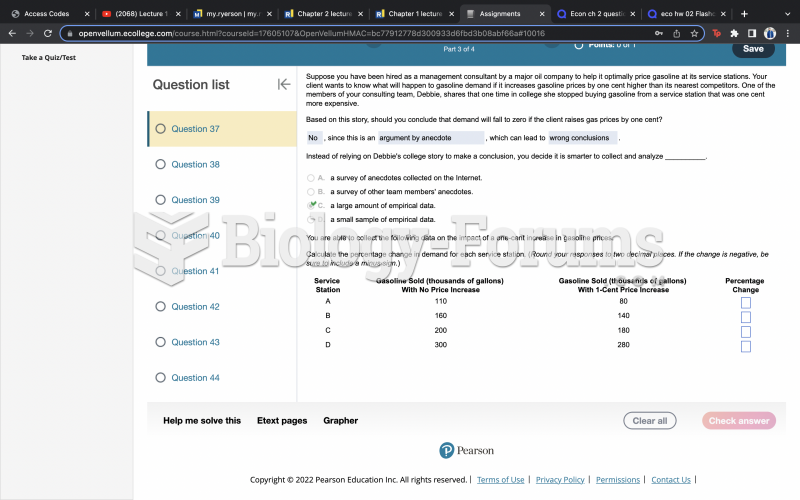Answer to Question 1
Correct Answer: 3,4
Rationale 1: NSAIDs should be taken with food or milk.
Rationale 2: Bleeding into the stomach results in coffee-ground vomitus.
Rationale 3: Light-headedness may indicate that the client is bleeding and not getting enough oxygen to the brain.
Rationale 4: Alcohol use should be avoided or eliminated when the client is taking an NSAID.
Rationale 5: Dark, tarry stools are an indication that there is bleeding in the gastrointestinal tract and that the NSAID should be discontinued.
Global Rationale: Teaching should include instructing the patient to immediately report any signs or symptoms of GI bleeding such as darkening of the stool or coffee-ground emesis. The patient should be taught to take the drug with food or milk to decrease GI irritation and to immediately report any signs or symptoms of ringing, humming, buzzing in ears, difficulty with balance, dizziness or vertigo, or nausea.
Answer to Question 2
Correct Answer: 1,3
Rationale 1: Aspirin may be ototoxic and cause hearing loss.
Rationale 2: Dehydration may be occurring and might cause dizziness but is not a likely cause of the buzzing sound or nausea.
Rationale 3: Buzzing or ringing in the ears, nausea, and dizziness are all associated with aspirin toxicity. This client should be evaluated in the clinic.
Rationale 4: This client is likely taking too much aspirin already.
Rationale 5: Aspirin allergy does not manifest as buzzing in the ears.
Global Rationale: This patient is likely taking too much aspirin. Tinnitus and hearing loss are common adverse effects with high doses of aspirin. Nausea and dizziness are also associated with aspirin toxicity. The patient should be assessed for other findings such as nephrotoxic effects or hepatotoxicity. Dehydration may be occurring and might cause dizziness but is not a likely cause of the buzzing sound or nausea. Aspirin allergy does not manifest as buzzing in the ears.







